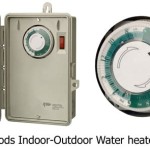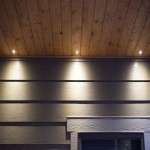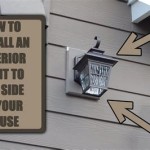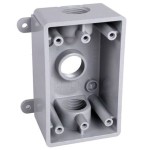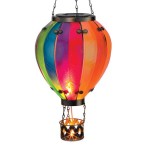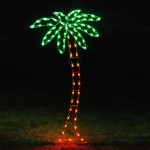What Size Outdoor Extension Cord Do I Need?
Outdoor extension cords are essential for powering tools and equipment away from a power source. But determining the right size extension cord for your needs can be a bit overwhelming. Here are some key factors to consider when choosing the appropriate cord size for your outdoor projects:
1. Amperage (Amps) Rating
The amperage rating of an extension cord refers to the maximum amount of current it can safely carry. To determine the correct amperage rating for your cord, add up the amperage draw of all the devices and tools you'll be using. The amperage draw for each appliance is typically listed on the nameplate or in the user manual.
2. Cord Length
The length of the extension cord you need will depend on the distance between the power source and the devices you're powering. Choose a cord that is long enough to reach comfortably without being too excessive, as longer cords can lead to voltage drop and reduced power output.
3. Voltage (Volts)
Most household appliances and tools run on 120 volts, so the extension cord you choose should have a voltage rating of 120V. Higher voltage cords are available but are typically designed for industrial or commercial applications.
4. Wire Gauge (AWG)
The wire gauge of an extension cord refers to the thickness of the conductor wires inside the cord. Thicker wires (lower gauge numbers) can carry more current than thinner wires (higher gauge numbers). The wire gauge required for your extension cord will depend on the amperage rating and the length of the cord.
5. Outdoor Rating
Always use an extension cord that is specifically rated for outdoor use. Outdoor extension cords have a weather-resistant jacket to protect the wires from moisture, sunlight, and other environmental factors.
6. Safety Features
Look for extension cords with safety features such as a built-in circuit breaker or fuse to protect against electrical overloads. Grounded cords with a three-prong plug also provide additional protection against electrical shock.
7. Quality Construction
Choose extension cords that are made with high-quality materials and construction. Look for cords with flexible and durable jackets, sturdy plugs, and reinforced stress relief points to prevent damage and ensure longevity.
8. Usage Environment
Consider the environment where you'll be using the extension cord. If the cord will be exposed to harsh conditions, such as rain, snow, or extreme temperatures, choose a cord that is specifically designed for those conditions.
9. Avoiding Voltage Drop
When using long extension cords, it's important to consider voltage drop. As the length of the cord increases, the voltage at the end of the cord can decrease, which can reduce the power output of your devices. To avoid excessive voltage drop, use a thicker wire gauge for longer cords.
10. Using Adapters
Avoid using adapters to connect multiple extension cords together. This can create a safety hazard and increase the risk of electrical overload. If you need a longer extension cord, purchase a single cord of the appropriate length and wire gauge instead.
By following these guidelines, you can select an outdoor extension cord that provides safe and reliable power for your projects. Remember to always follow the manufacturer's instructions and use proper safety precautions when using electrical equipment.

3 Tips To Consider When Choosing An Extension Cord Tenaquip

What Gauge Extension Cord Do I Need For An Rv

The Best Extension Cord Size For Power Tools

Extension Cord Size Chart Understanding Wire Gauge And Amps Ptr

How To Pick The Best Extension Cord At Hardware Wirecutter

Project Source 25 Ft 16 3 Prong Outdoor Sjtw Light Duty General Extension Cord In The Cords Department At Com

The Best Extension Cord Size For Power Tools
:max_bytes(150000):strip_icc()/extension-cord-choices-1152867-03-b33411e82a51464bac12ec7db773f467.jpg?strip=all)
Correct Extension Cord Sizes Are Critical To Safety

Southwire 50 Ft 12 3 Sjtw Hi Visibility Outdoor Heavy Duty Extension Cord With Power Light Plug 2588sw0002 The Home Depot

Project Source 100 Ft 16 3 Prong Outdoor Sjtw Light Duty General Extension Cord In The Cords Department At Com
